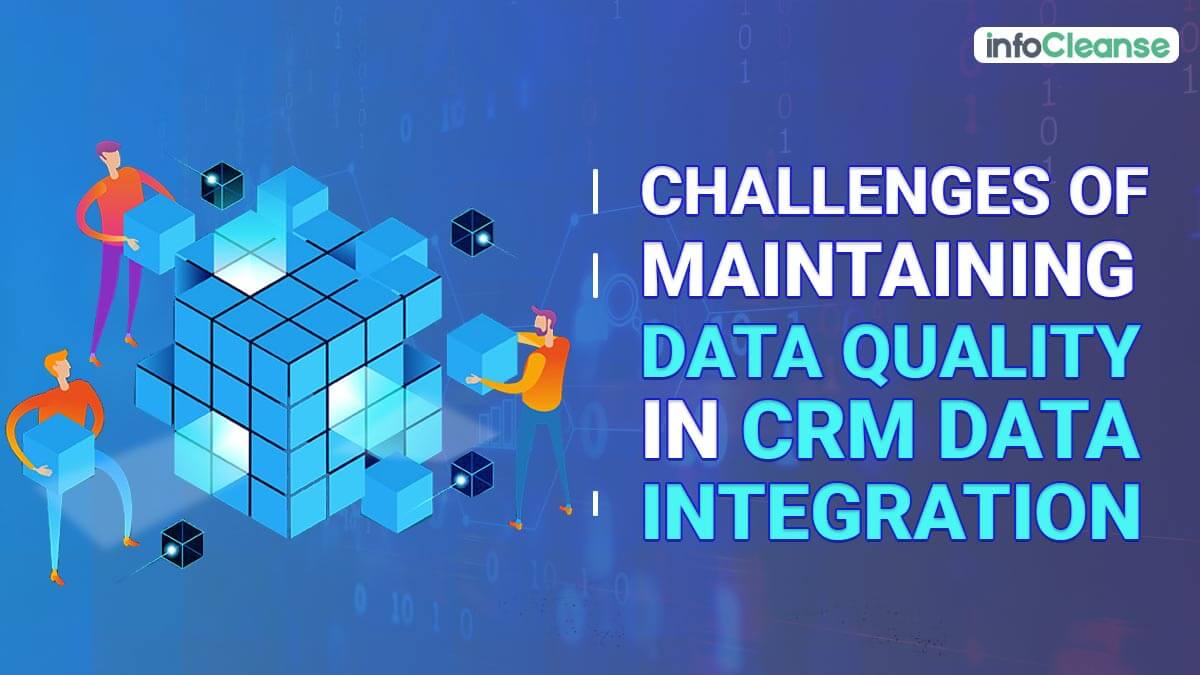
An efficient CRM data quality offers companies a huge competitive advantage over competitors that neglect their CRM. However, this is not a complete picture as data quality could easily overturn negatively.
The increased utilization of AI & machine learning applications combined with continuous large data sets from concurrent data streaming platforms further complicates data quality processes in organizations.
In addition to this, inadequate data quality maintenance can eventually lead to poor data quality. Hence, numerous challenges lay ahead for enterprises in maintaining data-quality, some of which include:
Organizations face internalization when maintaining global customer relationships. During such instances, the organization may deal with a foreign audience/customer, and subsequently, the customer information will have to be maintained in other languages & character set.
Situations like this could escalate very quickly and result in disastrous errors if someone forgets to take it into account. An example that amplifies such an issue is the NASA Mars satellite. A multi-million dollar project that crashed as they programmed the navigation software in imperial rather than metric units.
Similarly, handling data gathered in multiple languages could easily create complications if analytics tools aren’t able to recognize or translate it. If a system isn’t configured to identify it, even special characters such as umlauts or accents will start to wreak havoc.
Business enterprises remain divided with some utilizing in-house resources while others may employ outside assistance or build an analytics system for collecting & analyzing those customer data. This leads to adopting fragmented & faulty approaches – an obstacle that’s quite prevalent today.
Only a few enterprises are equipped with an efficient and comprehensive solution, while some have created their technology. This is something that potentially hinders data quality due to inconsistency as enterprises are unable to grasp the data collected across different channels.
An ideal scenario here would be a single solution that allows enterprises to integrate available information into their strategies, however, this isn’t quite possible yet. Hence, until all the necessary tools are made available, businesses will often face difficulty in discovering a requisite technology that offers the complete picture.
Data is something that changes very quickly and the rapidness of this change (especially in big data) makes the “timeliness” of data extremely short. This resonates with a necessity for higher provision for processing technology.
This potentially lands enterprises (or even governments) into a pit of decision-making error. Furthermore, real-time processing & analysis software are largely still at their developmental or improvement phases, while effective commercial products are less.
In any enterprise, maintenance ownership remains a great challenge since data quality includes several customer-facing systems. Plus, there’s also the inclusion of fragmented data ownership.
What most fail to grasp with data ownership is that it involves actively maintaining data accountability and managing data rights. However, a great portion of their time is put into managing other matters such as communicating with data stakeholders.
Data security along with compliance requirements are fished from a variety of sources and may even include corporate requirements as well as industry & government mandates like HIPAA or PCI DSS (Data Security Standards).
As such, the inability to reach these rules could embroil enterprises in hefty fines or perhaps something more costly like losing customer loyalty. These requirements defined by HIPAA or PCI uncover a strong case for enterprises to implement extensive data-quality management programs.
While consolidating privacy along with security compliance management as part of an overall data governance dynamic provides businesses with a significant advantage, wrapping up this matter is no easy task and proves to be an extreme challenge to date.
Despite being a key focus for businesses for over 30 years, the complexities involved in managing customer information increases exponentially. Moreover, the data that’s created through customers putting out information from web forms further adds to this already complex procedure.
For instance, a person enters and spell their name on a web form as “McCarthy,” “MacCarthy,” or “MaCarthy,” depending on their span of attention at that moment. Hence, the presence of an existing record may differ and end up creating a duplicate.
No matter the type of controls placed in action to standardize data, the central problem of uniquely identifying a customer persists. As such, data quality problems continue to be inherent and this challenge will exist as long as people are entering information.
Taking note of the above criteria, it’s also equally important to employ efficient CRM systems that can help your organization in maintaining data quality and overcome its challenges smoothly.
By being aware of the challenges that surround your data and acknowledging how to tackle those in your data strategy, it not only enhances your operation but places your business in a great place for collecting and analyzing data to make a better actionable and data-driven decision.
Data quality management is no easy task and so, it remains an ongoing process that requires businesses to check databases quite frequently to ensure things are running smoothly and make sure teams are following correct procedures. Hence, make sure your business isn’t falling behind.
Enterprises today navigate a complex business landscape combined with rapid technological evolution and fierce competition.…
In the ever-evolving B2B ecosystem, staying ahead of the curve is becoming a matter of…
From time immemorial, lawyers have played a crucial role in shaping our social fabric. With…
A pioneer in the automotive industry, the USA was the first country in the world…
The global software spectrum is so diverse and versatile that there is never any dearth…
What is the first thing that crosses your mind while visualizing a healthcare facility? The…